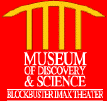 |
|
|
Conference Abstract Books &
Programs |
| Florida Bay and Adjacent Marine Systems Science Conference Abstracts & Program |
| Greater
Everglades Ecosystem Restoration (G.E.E.R.) Science Conference Abstracts & Program |
|
Note: If you are downloading with a dialup connection, it may take several minutes to load these files. It is recommended that you save the files to your computer for easy access in the future. |
General Conference Information
| Joint Conference Introduction |
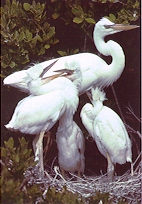 The
Florida Bay and Adjacent Marine Systems Science Conference and the Greater
Everglades Ecosystem Restoration (G.E.E.R.) Science Conference will for
the first time ever, be held in conjunction to provide a joint forum for
the exchange of information among physical, biological and social scientists.
The
Florida Bay and Adjacent Marine Systems Science Conference and the Greater
Everglades Ecosystem Restoration (G.E.E.R.) Science Conference will for
the first time ever, be held in conjunction to provide a joint forum for
the exchange of information among physical, biological and social scientists.
The Joint Conference on the Science and Restoration of the Greater Everglades and Florida Bay Ecosystem will be conducted April 13-18, 2003 at the Westin Innisbrook, just 25 miles from Tampa. Why Tampa? The Innisbrook offers a centralized setting and a total of 85,000 square feet of meeting space to accommodate our educational sessions, workshops and poster displays. Despite the fact it is high season in Florida, they have further agreed to extend a very special rate close to the confines of federal per diem.
The structure and integrity of each event will remain independent as it has in the past with independent meeting sessions, abstract books and scientific reports. One registration fee will be charged for the entire week. We encourage you to attend both segments of the conference and take advantage of this opportunity to meet with colleagues in all fields of science conducting research on the South Florida ecosystem "From Kissimmee to the Keys".
We look forward to seeing you there!
| Joint Conference Purpose |
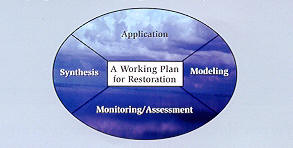 The
purpose of this conference is to provide a forum for physical, biological,
and social scientists to share their knowledge and research results concerning
restoration of the Greater Everglades and Florida Bay Ecosystem. The objectives
are to define specific restoration goals, determine the best approaches
to meet these goals, and provide benchmarks that can be used to measure
the success of restoration efforts over time.
The
purpose of this conference is to provide a forum for physical, biological,
and social scientists to share their knowledge and research results concerning
restoration of the Greater Everglades and Florida Bay Ecosystem. The objectives
are to define specific restoration goals, determine the best approaches
to meet these goals, and provide benchmarks that can be used to measure
the success of restoration efforts over time.
| Who Should Attend |
The conference is designed to bring together scientists, engineers,
managers, and regulators who are actively involved in all aspects of restoration.
Participants will interact in an interdisciplinary setting to summarize
and review state-of-the-art research and management activities and to formulate
goals and approaches to restoration.
| Joint Conference Agenda At-A-Glance |
|
NOTE: Detailed Agendas are large and may take a while to load. |
|
Sunday, April 13, 2003
| 3:00pm – 6:00pm | Conference Registration Opens and Florida Bay Poster Presenters to set up Displays |
| 4:00pm – 6:00pm | PMC & SOP Organizational Meetings |
| 6:00pm – 7:00pm | Early Bird Social in Poster Area with Welcome Address and Conference Overview by John Hunt |
| 7:00pm | Adjourn to “Unofficial Gathering” In Bamboo’s Restaurant |
Monday, April 14, 2003
| 7:00am – 8:00am | Morning Refreshments in Poster Display Area |
| 7:00am – 5:00pm | Conference Registration Office Open |
| 8:00am – 5:00pm | Florida Bay Plenary Session |
| 8:00am – 5:00pm | ATLSS Training Workshop: Across Trophic Level System Simulation (ATLSS), is a spatial query and visualization GIS tool that provides the capability of retrieving, displaying, and analyzing ATLSS model data by means of a user-friendly graphical interface. A certified ArcView instructor will provide instruction and advance registration is required to participate. Detailed information will soon be announced. |
| 12:10pm – 1:30pm | Lunch on Your Own |
| 5:30pm – 8:30pm | Florida Bay Poster Session & Networking Reception |
| 8:30pm | Session Adjourns to “Unofficial Gathering” In Bamboo’s Restaurant |
Tuesday, April 15, 2003
| 7:30am – 8:30am | Morning Refreshments in Poster Display Area |
| 7:30am – 5:00pm | Conference Registration Office Open |
| 8:00am – 5:40pm | Florida Bay Plenary Session |
| 8:30am – 5:00pm | Concurrent Sessions: Greater Everglades (GEER) |
| 9:00am – 5:00pm | SOFIA IMS Demo and Web Site Usability Testing
(Stop by Salons G & H to Sign up for interactive demo session.) |
| 12:00pm – 1:30pm | Lunch on Your Own |
| 5:00pm – 6:30pm | Florida Bay Posters to Be Removed |
| 6:30pm – 9:00pm | Joint Conference Networking Reception |
Wednesday, April 16, 2003
| 7:00am – 8:30am | Morning Refreshments in Poster Display Area |
| 7:00am – 8:30am | GEER Posters to Be Set Up |
| 7:00am – 5:00pm | Conference Registration Office Open |
| 8:30am – 12noon | Greater Everglades (GEER) Plenary Session |
| 9:00am – 5:00pm | SOFIA IMS Demo and Web Site Usability Testing
(Stop by Salons G & H to Sign up for interactive demo session.) |
| 12noon – 1:30pm | Lunch on Your Own |
| 1:30pm – 5:40pm | Concurrent Sessions: Greater Everglades (GEER) |
| 6:00pm – 8:00pm | GEER Poster Session I & Reception |
| 8:00pm | Adjourn to “Unofficial Gathering” In Bamboo’s Restaurant |
Thursday, April 17, 2003
| 7:30am – 8:30am | Morning Refreshments in Poster Display Area |
| 7:30am – 5:00pm | Conference Registration Office Open |
| 8:30am – 10:30am | Plenary Session: Restoration Science Successes for Southwest Florida |
| 9:00am – 5:00pm | SOFIA IMS Demo and Web Site Usability Testing
(Stop by Salons G & H to Sign up for interactive demo session.) |
| 10:30am – 5:00pm | Concurrent Sessions: Greater Everglades (GEER) |
| 12noon – 1:00pm | Lunch on Your Own |
| 6:00pm – 8:00pm | GEER Poster Session II and Reception |
| 8:00pm | Adjourn to "Unofficial Gathering" in Bamboo's Restaurant |
Friday, April 18, 2003
| 7:30am – 8:30am | Morning Refreshments in Poster Display Area |
| 7:30am – 5:00pm | Registration Office Open |
| 8:30am – 1:30pm | Concurrent Sessions: Greater Everglades |
| 12noon – 1:30pm | Poster Display Removal |
| 1:30pm | Joint Science Conference Concludes |
NOTE: There will be morning, mid-day and afternoon
refreshment breaks served daily in the Poster/Exhibit Display Area.
| Registration Information |
Registration Fee: The registration fee will allow each registrant to receive one copy of the combined book of abstracts, conference materials, and attendance at all sessions throughout the week. Hors d’oeuvres and refreshments will be provided at the Sunday Welcome Social, at the Tuesday & Thursday Poster Session Receptions and during the Wednesday evening networking reception. Registered participants will also enjoy early morning refreshments, as well as daily mid-morning and afternoon breaks. The guest and child registration fees include full attendance at all conference meal functions. Guests will not receive a copy of the conference abstracts.
All figures presented in US dollars ($).
|
Early Reduced Registration
|
Meeting Attendees
Student Attendees Spouses/Guests Children (12 & under) |
$250
$150 $150 $75 |
|
Regular Registration
|
Meeting Attendees
Student Attendees Spouses/Guests Children (12 & under) |
$350
$250 $250 $100 |
|
Late & Onsite Registration
|
Meeting Attendees
Student Attendees Spouses/Guests Children (12 & under) |
$375
$275 $275 $125 |
| We are delighted you wish to register
for the Joint Conference. While Advance Registration is closed, we will be
happy to register you onsite at the conference, and look forward to your
participation. Thank you. |
| Exhibit Information |
The conference will feature an excellent opportunity for organizations to display educational and informative materials at the conference, experience new tools, network with colleagues and share ideas.
-
Exhibit/display space is limited and will be assigned on a first-come, first-served basis.
-
Each display must be accompanied by a fully paid registration.
- Display Space Fee is $350 and includes a 3' deep x 8' wide display space.
 To register
for a Display Space, you can
click here to reserve
exhibit space
with a credit card online.
(via our Secured Server)
To register
for a Display Space, you can
click here to reserve
exhibit space
with a credit card online.
(via our Secured Server)
OR, click here to load a form that can be printed to your printer, then return the form by fax or mail with payment to the Office of Conferences and Institutes. (You will need Adobe Acrobat Reader to open and print the PDF form file.)
| Florida Bay & GEER Call for Abstracts |
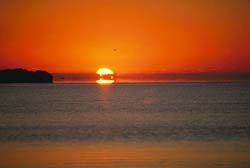 Scientists
involved in the restoration effort of the Greater Everglades, Florida Bay,
the Florida Keys National Marine Sanctuary, the Biscayne Bay area and the
southwest Florida Shelf are strongly encouraged to submit abstracts describing
their research projects and statistics measuring current results. Special
consideration will be given to work that synthesizes across disciplines.
Abstract submissions will be used to select oral and poster presentations,
and ALL abstracts, both oral and poster, will be published in the respective
conference book of abstracts and be posted on the web site following the
conference.
Scientists
involved in the restoration effort of the Greater Everglades, Florida Bay,
the Florida Keys National Marine Sanctuary, the Biscayne Bay area and the
southwest Florida Shelf are strongly encouraged to submit abstracts describing
their research projects and statistics measuring current results. Special
consideration will be given to work that synthesizes across disciplines.
Abstract submissions will be used to select oral and poster presentations,
and ALL abstracts, both oral and poster, will be published in the respective
conference book of abstracts and be posted on the web site following the
conference.
Researchers not wishing to make oral presentations are strongly encouraged to prepare posters and submit an abstract. As with oral talks, poster presentations provide a valuable opportunity for scientific interaction. Abstracts are due no later than January 10, 2003 and must be submitted electronically. Detailed instructions are provided below. Be sure to follow them carefully to ensure that your submission is received and recorded.
If your abstract relates to Florida Bay Science management and Restoration, please submit your abstract for publication in the Florida Bay abstract book. If your abstract relates to other coastal systems or the Greater Everglades, submit your abstract for publication in the GEER abstract book.
- Click here to view the Central Questions -- Florida Bay Ecosystems
- Click here to view Primary Conference Topics -- Greater Everglades and Other Coastal Systems
- Click here for instructions and submittal of Florida Bay Ecosystems abstracts
- Click here for instructions and submittal of Greater Everglades and Other Coastal Systems abstracts
| Florida Bay Central Questions |
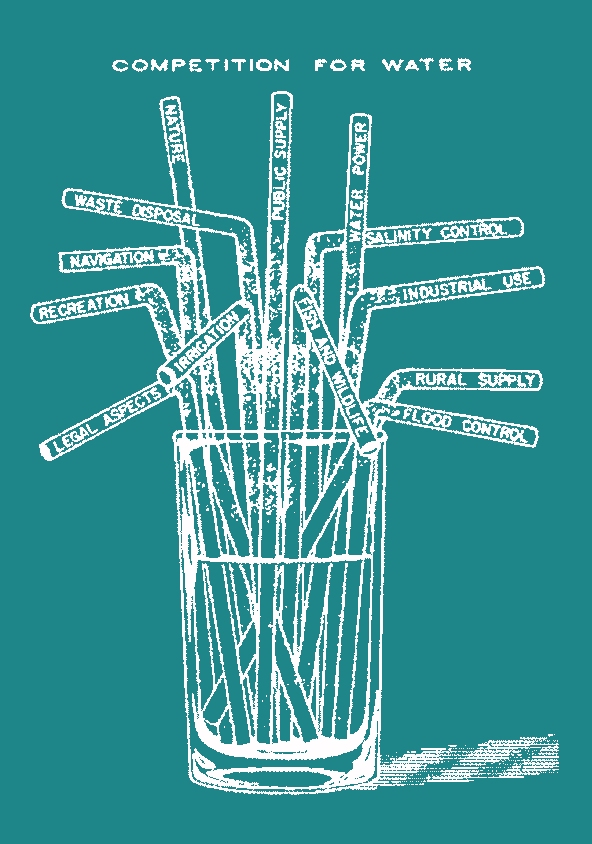 On
the advice of the Florida Bay Science Oversight Panel, the PMC has defined
a series of core or central research questions to provide a framework for
establishing program priorities. The five questions posed are discussed
below in terms of the information and modeling needs considered critical
for program success. All are tied to achieving a comprehensive knowledge
of the Bay as a complex ecosystem that has undergone profound changes in
its recent past.
On
the advice of the Florida Bay Science Oversight Panel, the PMC has defined
a series of core or central research questions to provide a framework for
establishing program priorities. The five questions posed are discussed
below in terms of the information and modeling needs considered critical
for program success. All are tied to achieving a comprehensive knowledge
of the Bay as a complex ecosystem that has undergone profound changes in
its recent past.
1. How and at what rates do storms, changing freshwater flows, sea level rise, and local evaporation/precipitation patterns influence circulation and salinity patterns within Florida Bay and outflows from the Bay to adjacent waters?
2. What is the relative importance of the advection of exogenous nutrients, internal nutrient cycling including exchange between water column and sedimentary nutrient sources, and nitrogen fixation in determining the nutrient budget of Florida Bay?
3. What regulates the onset, persistence and fate of planktonic algal blooms in Florida Bay?
4. What are the causes and mechanisms for the observed changes in seagrasses and the hardbottom community of Florida Bay and adjacent marine systems? What is the effect of changing salinity, light and nutrient regimes on these communities?
5. What is the relationship between environmental change, habitat change, and the recruitment, growth and survivorship of higher trophic level species?
NOTE: If you are unsure as to which topical question your research falls
under, email John Hunt at john.hunt@fwc.state.fl.us
or contact the appropriate research team leader. A list of research teams
and topical questions is located at: www.aoml.noaa.gov/flbay/pmcrschtms2.html
| Florida Bay Program Management Committee (PMC) |
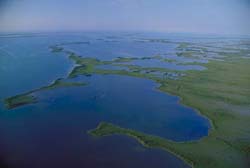 To
assure that the many individually funded scientific projects are integrated
into a comprehensive program addressing key issues, a PMC
was formed in 1994 and its membership expanded in 1998. The PMC consists
of scientific program managers from:
To
assure that the many individually funded scientific projects are integrated
into a comprehensive program addressing key issues, a PMC
was formed in 1994 and its membership expanded in 1998. The PMC consists
of scientific program managers from:
- Miami-Dade County Department of Environmental Resources Management
- Florida Department of Environmental Protection
- Florida Fish and Wildlife Conservation Commission
- National Oceanic and Atmospheric Administration
- Florida Keys National Marine Sanctuary
- National Marine Fisheries Service
- Office of Oceanic and Atmospheric Research
- National Park Service
- Biscayne National Park
- Everglades National Park
- South Florida Water Management District
- U.S. Army Corps of Engineers
- U.S. Environmental Protection Agency
- U.S. Fish and Wildlife Service
- U.S. Geological Survey
- Biological Resources Division
- Water Resources Division
The primary functions of the PMC are: (a) to develop and implement a
research strategy designed to merge scientific understanding of the Bay
and adjacent marine systems with management’s decision making processes;
(b) to facilitate a consensus-based process for determining science needs
and priorities; (c) to promote funding of critical science needs; (d) to
develop and maintain an open and scientifically sound review process for
evaluating research results and for advancing the program; and (e) to communicate
research results and program progress to management as well as the scientific
and public community.
| Relationship to Restoration Managers |
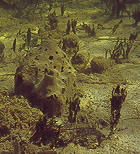 One
of the most important goals of the Florida Bay interagency science program
is to provide scientific information and models that will enable natural
resource managers to make responsible decisions based on sound science.
The PMC provides this information through direct briefings, conducting
the annual Florida Bay and Adjacent Marine Systems Science Conference,
and PMC participation in the larger components of the South Florida Ecosystem
Restoration Initiative such as the Task Force, Working Group and Science
Subgroup.
One
of the most important goals of the Florida Bay interagency science program
is to provide scientific information and models that will enable natural
resource managers to make responsible decisions based on sound science.
The PMC provides this information through direct briefings, conducting
the annual Florida Bay and Adjacent Marine Systems Science Conference,
and PMC participation in the larger components of the South Florida Ecosystem
Restoration Initiative such as the Task Force, Working Group and Science
Subgroup.
| Florida Bay Scientific Advisory Panel |
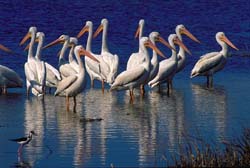 It
is vital to the Interagency Florida Bay and Adjacent Marine Systems Science
Program that its projects, plans, and direction are carefully and continuously
reviewed by an independent outside review panel of experts. The Florida
Bay Science Oversight Panel has served this important function. The Oversight
Panel participates in annual conferences by formally leading question and
answer sessions and by providing the PMC a written report that critically
reviews and recommends advancement and implementation of the Program. Additionally,
it arranges ad hoc advisory panels of experts in specialized topical subjects
to participate in workshops. To date, review workshops have included circulation
modeling, water quality modeling, nutrient dynamics, seagrass ecology and
higher trophic levels. The Oversight Panel consists of senior scientists
with significant experience in major estuarine scientific programs, and
its current membership includes:
It
is vital to the Interagency Florida Bay and Adjacent Marine Systems Science
Program that its projects, plans, and direction are carefully and continuously
reviewed by an independent outside review panel of experts. The Florida
Bay Science Oversight Panel has served this important function. The Oversight
Panel participates in annual conferences by formally leading question and
answer sessions and by providing the PMC a written report that critically
reviews and recommends advancement and implementation of the Program. Additionally,
it arranges ad hoc advisory panels of experts in specialized topical subjects
to participate in workshops. To date, review workshops have included circulation
modeling, water quality modeling, nutrient dynamics, seagrass ecology and
higher trophic levels. The Oversight Panel consists of senior scientists
with significant experience in major estuarine scientific programs, and
its current membership includes:
|
| Florida Bay Research Teams |
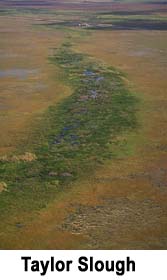 The
success of the Interagency Florida Bay and Adjacent Marine Systems Science
Program depends largely on clear and regular communication and collaboration
amongst the scientists working in the Bay. To promote this, the PMC has
organized researchers and modelers into topical
research
teams. To date, teams have been formed in paleoecology, circulation/hydrology,
water quality/nutrient dynamics, algal blooms, seagrass and benthic ecology,
higher trophic levels and model integration. Teams consist of formally
appointed leaders, a PMC representative, and modelers and researchers working
in the Bay and adjacent marine systems. All scientists having expertise
in a particular area are welcome to participate and to contribute to research
team deliberations.
The
success of the Interagency Florida Bay and Adjacent Marine Systems Science
Program depends largely on clear and regular communication and collaboration
amongst the scientists working in the Bay. To promote this, the PMC has
organized researchers and modelers into topical
research
teams. To date, teams have been formed in paleoecology, circulation/hydrology,
water quality/nutrient dynamics, algal blooms, seagrass and benthic ecology,
higher trophic levels and model integration. Teams consist of formally
appointed leaders, a PMC representative, and modelers and researchers working
in the Bay and adjacent marine systems. All scientists having expertise
in a particular area are welcome to participate and to contribute to research
team deliberations.
| Florida Bay Organizing Committee |
|
John Hunt, Conference
Organizer |
| Beth Miller-Tipton, Conference Coordinator
University of Florida/IFAS Office of Conferences & Institutes (OCI) Building 639 Mowry Road PO Box 110750 Gainesville, FL 32611-0750 Phone: (352) 392-5930 Fax: (352) 392-9734 Email: bmiller-tipton@mail.ifas.ufl.edu |
Greater Everglades Ecosystem Restoration (GEER) Program
| GEER Primary Conference Topics |
Who Should Attend
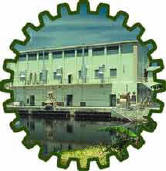 |
Hydrology
and Hydrological Modeling
|
Ecology
and Ecological Modeling
|
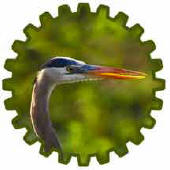 |
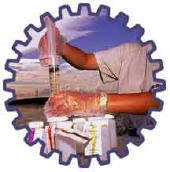 |
Water Quality
and Water Treatment Technologies
|
Social and Human Sciences
|
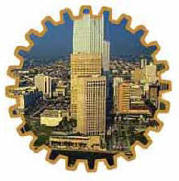 |
 |
Information Systems
|
Agro-Ecology and Ecosystem
Restoration
|
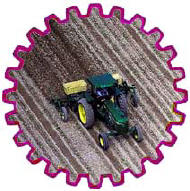 |
 |
Other
Coastal Ecosystems
|
Invasive and Exotic Species
|
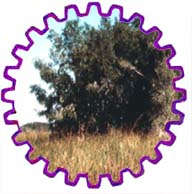 |
| South Florida Ecosystem Restoration Task Force and Working Group and Other Participating Organizations |
| UF Organizations Participating in the Joint Conference |
|
|
||
|
|
|
|
| GEER Science Conference Program Committee |
Nick Aumen, Everglades National Park, Everglades Program Team, Boynton Beach, FL
G. Ronnie Best, Conference Organizer, U.S. Geological Survey, Greater Everglades Science Initiative, Miami, FL
Laura Brandt, U.S. Fish and Wildlife Service, Biology Division, Boynton Beach, FL
Stan Bronson, University of Florida, Palm Beach County Cooperative Extension Service, West Palm Beach, FL
Joan Browder, National Marine Fisheries Service, Southeast Fisheries Science Center, Miami, FL
David Colangelo, South Florida Water Management District, Kissimmee Division, West Palm Beach, FL
Wayne E. Daltry, Director, Smart Growth Department, Lee County Administration, Ft. Myers, FL
Donald DeAngelis, U.S. Geological Survey, Florida Integrated Science Centers, Coral Gables, FL
Robert F. Doren, Ecologist, U.S. Department of Interior at Florida, International University, Miami, FL
Michael Duever,
South Florida Water Management District, Lower West Coast Service Center,
Ft. Myers, FL
H. Carl Fitz, South Florida Water Management District, Everglades Division, West Palm Beach, FL
Aaron Higer, U.S. Geological Survey, Boca Raton, FL
Todd Hopkins, U.S. Fish and Wildlife Service, South Florida Ecological Services, Vero Beach, FL
Maria “Maggie” Irizarry, U.S. Geological Survey, Miami, FL
Jennifer Jorge, South Florida Water Management District, Southern District Restoration, West Palm Beach, FL
Brian Keller, NOAA, Florida Keys National Marine Sanctuary, Marathon, FL
David Krabbenhoft, U.S. Geological Survey, Middleton, WI
Bonnie Kranzer, Lead Planner, South Florida Water Management District, Lower West Coast Service Center, Ft. Myers, FL
Frank Mazzotti, University of Florida, IFAS, Fort Lauderdale Research & Education Center, Fort Lauderdale, FL
Sue Newman, South Florida Water Management District, Everglades Division, West Palm Beach, FL
Jayantha Obeysekera, South Florida Water Management District, West Palm Beach, FL
John Ogden, South Florida Water Management District, RECOVER, West Palm Beach, FL
Ramesh Reddy, University of Florida, IFAS, Soil & Water Science Department, Gainesville, FL
Heather Rein, Florida Gulf Coast University, College of Arts and Science, Ft. Myers, FL
Kenneth Rice, U.S. Geological Survey, Center for Water and Restoration Studies, Fort Lauderdale, FL
Michael Savarese, Florida Gulf Coast University, Ecological Studies, Ft. Myers, FL
James R. Snyder, U.S. Geological Survey, Center for Water and Restoration Studies, Ochopee, FL
Roy Sonenshein, U.S. Geological Survey, Center for Water and Restoration Studies, Miami, FL
Pamela Telis, U.S. Geological Survey, Jacksonville, FL
Lou Toth, South Florida Water Management District, Kissimmee Watershed Management Team, West Palm Beach, FL
| GEER Organizing Committee |
|
G. Ronnie Best,
PhD, PWS, Conference Organizer |
| Beth Miller-Tipton, Conference Coordinator
University of Florida/IFAS Office of Conferences & Institutes (OCI) Building 639 Mowry Road PO Box 110750 Gainesville, FL 32611-0750 Phone: (352) 392-5930 Fax: (352) 392-9734 Email: bmiller-tipton@mail.ifas.ufl.edu |
| Meeting Site and Hotel Information |

36750 U.S. Highway 19 North
Palm Harbor, Florida 34684
PH: 800-456-2000 / FAX: 727-942-5576
westin-innisbrook.com
 The
Westin Innisbrook, just 25 miles from Tampa, offers the perfect setting
as one of Florida’s most prestigious conference facilities with 85,000
square feet of total function space and break-out rooms that will comfortably
accommodate our education1al sessions, workshops and poster displays. This
1,100-acre property features 700 luxurious guest suites; 72 holes of championship
golf on four award-winning courses; a complete tennis, racquetball and
fitness facility; a sophisticated meeting and convention center; plus outstanding
dining in four restaurants, all just a few steps from your spacious suite.
Guests enjoy six swimming pools, including the fabulous Loch Ness Pool
and Spa, jogging and cycling trails, a wildlife preserve, and complete
children's recreation center.
The
Westin Innisbrook, just 25 miles from Tampa, offers the perfect setting
as one of Florida’s most prestigious conference facilities with 85,000
square feet of total function space and break-out rooms that will comfortably
accommodate our education1al sessions, workshops and poster displays. This
1,100-acre property features 700 luxurious guest suites; 72 holes of championship
golf on four award-winning courses; a complete tennis, racquetball and
fitness facility; a sophisticated meeting and convention center; plus outstanding
dining in four restaurants, all just a few steps from your spacious suite.
Guests enjoy six swimming pools, including the fabulous Loch Ness Pool
and Spa, jogging and cycling trails, a wildlife preserve, and complete
children's recreation center.
The Westin Innisbrook is offering participants of the Joint Conference on the Science and Restoration of the Greater Everglades and Florida Bay Ecosystem a special guest room rate of $100.00 a night plus tax with one or two people in a room and $110.00 a night with three or four people in a room. Their standard nightly resort fee has been waived especially for participants of this conference. The Resort Services Fee includes access to the fitness center (not including spa services), daily newspaper delivery, on-site transportation, in-room coffee service, access to Loch Ness and five other pools, recreation areas including Miniature Golf and Nature Walk, daily resort guest membership to our three clubhouses and four golf courses, golf clinics (based on availability).
NOTE: All room rates are quoted exclusive of applicable
state and local taxes, currently 11%.
|
Westin Innisbrook Layout & On-property Transportation What’s the Best Way to Get to the Westin Innisbrook? |
Available Hotel Guest Room Types
The Westin Innisbrook Resort offers three types of beautifully appointed guest room accommodations with full-size balconies, many of which overlook one of the four award winning golf courses on the Westin Innisbrook property. Conference participants will primarily be housed in guest room buildings located closest to the main conference center where our meetings and poster sessions will be held.
Roughly one-third of each
room type is available to conference participants on a first-come, first-served
basis at the group rate of $100 a night plus the $10 nightly resort fee
and applicable taxes. We encourage you to make your hotel reservation as
soon as possible if you wish to stay in a suite at the group rate.
Back to Hotel Information Index
A Deluxe Guest Room is most similar to a standard hotel guest room, except it has more square footage and two bathroom vanities, which is convenient if you plan to share a room with someone to defray lodging costs. (diagram)
A Junior Suite consists of a king-size bed, an adjacent parlor area with a sleeper sofa and armchair, and a separate kitchen fully furnished with utensils, a full size refrigerator and stove. There is also an accordion room divider that can be pulled closed to divide the room in half. (diagram)
A One-Bedroom Suite is considerably larger and comes with either a king size or two double beds with a separate living room and full kitchen, fully furnished with utensils, a full-size refrigerator and stove. (diagram)
A One-Bedroom Deluxe Suite features an additional 11' by 12' den, ideally suited for small informal meetings. (diagram)
If you are traveling with colleagues from your office, you may want to make your reservations at the same time so you can request a Deluxe Guest Room that connects to a One-Bedroom Suite. This will give you a two-bedroom suite layout, and everyone in your office can share the kitchen and living room area, which makes a nice setting for networking and group discussion.
Remember, reservations will be accepted on a first-come,
first-served basis, so it is indeed true the Early Bird Will Get the Worm!
Don’t delay — make your hotel reservation today. And if you plan to bring
your family, the group rate will be honored three days prior and three
days following the conference, based on availability with advance reservations
for those who wish to extend their stay to take advantage of the lovely
amenities the Westin Innisbrook has to offer.
Back to Hotel Information Index
How to Make a Hotel
Reservation
To make reservations, contact the Westin's Central Reservations Office at 1-800-456-2000. To receive the discounted group rate be sure to identify yourself as a participant of the Joint Conference on the Science and Restoration of the Greater Everglades and Florida Bay Ecosystem. All reservation requests will require a guarantee with a credit card or a one (1)-night advance payment on or before March 1st, 2003. This advance payment will be automatically charged to your credit card, and is non-refundable if you do not arrive as scheduled, or if you change or cancel the reservation less than 72 hours prior to arrival. All deposits are charged at the time the reservation is made, and will be applied to the first night of reserved stay.
After the reservation deadline of March 1st, guest rooms may no longer be on hold and the discounted group rate may no longer be available.
Please Note: As this is a discounted group rate, it is not commissonable
to travel agents.
Back to Hotel Information Index
Westin Innisbrook Layout & On-property Transportation
If you have never been to the Westin Innisbrook before, it is an impressive facility located on 1,100 acres, with guest room buildings situated throughout the property. Conference participants will primarily be housed in guest room buildings nearest to the main conference center where our meetings and poster sessions will be held. Each guest room-building complex has its own swimming pool as well as a complimentary laundry facility furnished with washers and dryers.
With the hotel situated on 1,100 acres, it is more than an elevator
ride to the ground floor. But not to worry. Want a ride from your guest
room to the conference center? Pick up the phone and just dial 0 for service
express. Within five minutes an air-conditioned shuttle bus arrives at
your door. Want to dine at the Westin’s famous DY’s Steakhouse? You guessed
it…just dial 0. The hotel’s on-property shuttle service provides continuous
on-property transportation service for its guests, so you don’t have to
worry about driving and parking your car…remember, it’s 1,100 acres!
Back to Hotel Information Index
What’s the Best Way to Get to the Westin Innisbrook?
The Suncoast of Florida is served by Tampa International Airport and
Innisbrook is less than 45 minutes away by airport shuttle. All major airlines
serve Tampa International Airport providing 500 total flights per day.
Instead of spending hours on the road driving, we recommend you fly into
Tampa and take advantage of the Westin Innisbrook’s convenient shuttle
service that drops you off right at Westin’s front door. And once you have
arrived at the Westin, the hotel operates a shuttle service, so unless
you plan to drive around the area, the hotel will take you wherever you
want to go while on property.
Back to Hotel Information Index
Driving Directions to the Westin Innisbrook
If you plan to drive to the Westin Innisbrook, click
here for printed directions whether you are driving from the north,
south, east or west.
Back to Hotel Information Index
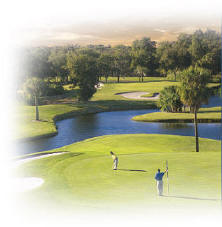
Shuttle service is provided through Tampa International Airport to the
Westin Innisbrook Resort. Reservations must be made the day
before. Same day requests will be handled subject to availability. The
cost for this service is $25 each way. Please call (727) 942-5202
for reservations.
Back to Hotel Information Index
For participants wanting to play golf while at the Innisbrook, the hotel
is offering reduced rates of $60 for the Westin Highlands North or South
courses, $80 for the Island Course and $100 for Copperhead, home of the
Chrysler Championship. Golf starting times are scheduled in 8-9 minute
intervals, and each starting time is allocated in its entirety, four (4)
players per starting time. Golf fees quoted are per player rates and include
the greens fee and a cart fee (subject to 7% county tax.). Please call
the Westin Innisbrook golf department at 727-942-5220 up to seven days
in advance for reservations so their staff can be prepared to accommodate
you properly. While making tee times, be sure to specify you are a participant
of the Joint Conference to receive the proper rate.
Back to Hotel Information Index
| Additional Area Information |
 |
Tampa International Airport |
 |
 |
|
|
For
More Information on
the Joint Conference |
Contact:
Beth Miller-Tipton, Conference
Coordinator
Office of Conferences and Institutes (OCI)
University of Florida / IFAS
PO Box 110750
Building 639, Mowry Road
Gainesville, FL 32611-0750
PHONE: 352-392-5930 / FAX: 352-392-4044
E-mail: bmiller-tipton@mail.ifas.ufl.edu













